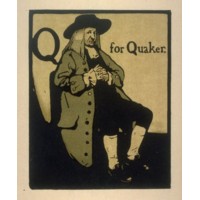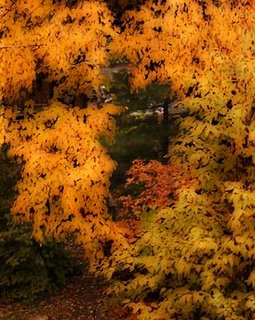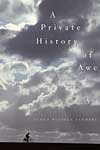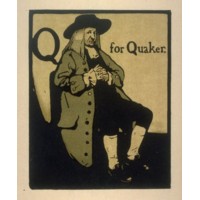O little town of Bethlehem,
How still we see thee lie.
Above thy deep and dreamless sleep
The silent stars go by.
Yet in thy dark streets shineth,
The everlasting Light;
The hopes and fears of all the years
Are met in thee tonight.
We sing these familiar words of Philip Brooks every Christmas season. At Christmastime we sing of the little town of Bethlehem with its dark streets and yet in our minds we often picture a bustling mid-eastern city of today. That is, after all, what we know of Bethlehem in our modern world. We know it from pictures on television or in the newspaper or magazines as a crowded city of about 20,000 – most of whom are Palestinian. The next largest group is Greek Orthodox. And of course there are Israelis – though many of them are soldiers stationed at checkpoints, sent there to keep the peace between Muslim, Jew and Christian during a time of celebration of the birth of the prince of peace.
How still we see thee lie.
Above thy deep and dreamless sleep
The silent stars go by.
Yet in thy dark streets shineth,
The everlasting Light;
The hopes and fears of all the years
Are met in thee tonight.
We sing these familiar words of Philip Brooks every Christmas season. At Christmastime we sing of the little town of Bethlehem with its dark streets and yet in our minds we often picture a bustling mid-eastern city of today. That is, after all, what we know of Bethlehem in our modern world. We know it from pictures on television or in the newspaper or magazines as a crowded city of about 20,000 – most of whom are Palestinian. The next largest group is Greek Orthodox. And of course there are Israelis – though many of them are soldiers stationed at checkpoints, sent there to keep the peace between Muslim, Jew and Christian during a time of celebration of the birth of the prince of peace.
The prophet Micah wrote, almost seven hundred years before Mary and Joseph made their trip to there, "But you, O Bethlehem Eph'rathah, who are little to be among the clans of Judah, from you shall come forth for me one who is to be ruler in Israel, whose origin is from of old, from ancient days. Therefore he shall give them up until the time when she who is in travail has brought forth; then the rest of his brethren shall return to the people of Israel. And he shall stand and feed his flock in the strength of the LORD, in the majesty of the name of the LORD his God. And they shall dwell secure, for now he shall be great to the ends of the earth."
Herod had cause to be worried. If he knew anything of Scripture (and if he didn’t, you can be sure he had those around him who did), he knew that the prophet Micah had written the words of our Scripture lesson almost seven hundred years earlier. The little town of Bethlehem, the birthplace of the great king David, was prophesied to be the birthplace of the Messiah. Seven hundred years of prophecy were about to be completed in the birth of one tiny baby.
For just a few minutes, imagine the little town of Bethlehem as it was as the time of Jesus birth. Use your imagination. Go with me to a time and place that is much, much different than where we live in this 21st century.
First, imagine that it is dark. It is so dark, as you stand on the Judean hillside, that you look up and can see every star shining with an almost blinding brilliance. You behold the great clusters of stars, so numerous you can not begin to count them. The fragrance of the hillside grasses wafts on the air. You feel the ground solid beneath your sandaled feet as you walk along the path leading to town.
The air is crisp, so you pull your cloak tighter around you. You feel the coarseness of the cloth and are ready to be home where it is warm and some food is waiting. The moon is full, so you have plenty of light to see by as you walk. As you come over a small rise along the hills, there is the town of Bethlehem below you. It is dark. And quiet. It buildings, shops and homes alike, sit huddled close together, as though against the coming winter cold. The streets are narrow and people leaning from one shop to another can almost pass goods back and forth across the street. Except it is night. There is no activity. There are hardly any lights showing, even in the houses. Candlemaking is hard work and oil for lamps does not come cheap. What little light there is is often cast by cooking fires that are slowly going out all over town.
You walk along, into town. The stone buildings are close to you as you walk down the streets, towards your home. The street is dusty and it will feel good to get home and take off your heavy cloak and sandals and wash the dust from your body. You brush up against one of the houses. You can feel some warmth of the sun remaining, slowly ebbing away as the night deepens. At last you are home. You are thankful that you have a place to stay tonight. With the census being called, every man is required to return to his hometown and be registered. The city is overflowing with people. The poor innkeeper is going crazy trying to find accommodations for all who need a nights lodging.
As you turn to go into your warm house, you notice someone coming down the street. It is a man and woman. The woman is heavy with child. You wonder why she is traveling in that condition. “I sure hope they’ve got a place to stay,” you think to yourself. “I doubt they’ll have any luck at the inn.”
We don’t usually think of cities or towns as characters in any of God’s dramas, but the fact is that all of creation is involved in God’s evolving history. Jesus himself one time said that if his followers were quiet, the rocks would cry out his praises. And so we find a little town playing a major role in the history of God and his people. The little town of Bethlehem was the birthplace of shepherd king and later the King who was a shepherd.
Perhaps the lesson for us today is to be like Bethlehem. It was a city to whom a promise had been given. It waited for the fulfillment of that promise. It waited seven hundred years. At last, the prophecy came to pass. Maybe that’s what Bethlehem has to teach us this advent season – to trust in God’s good promises and timing enough to wait. For when the time is right, and the promise is fulfilled, in the dark streets of our lives, like those dark streets of Bethlehem, will shine an everlasting Light.
-- Brent











